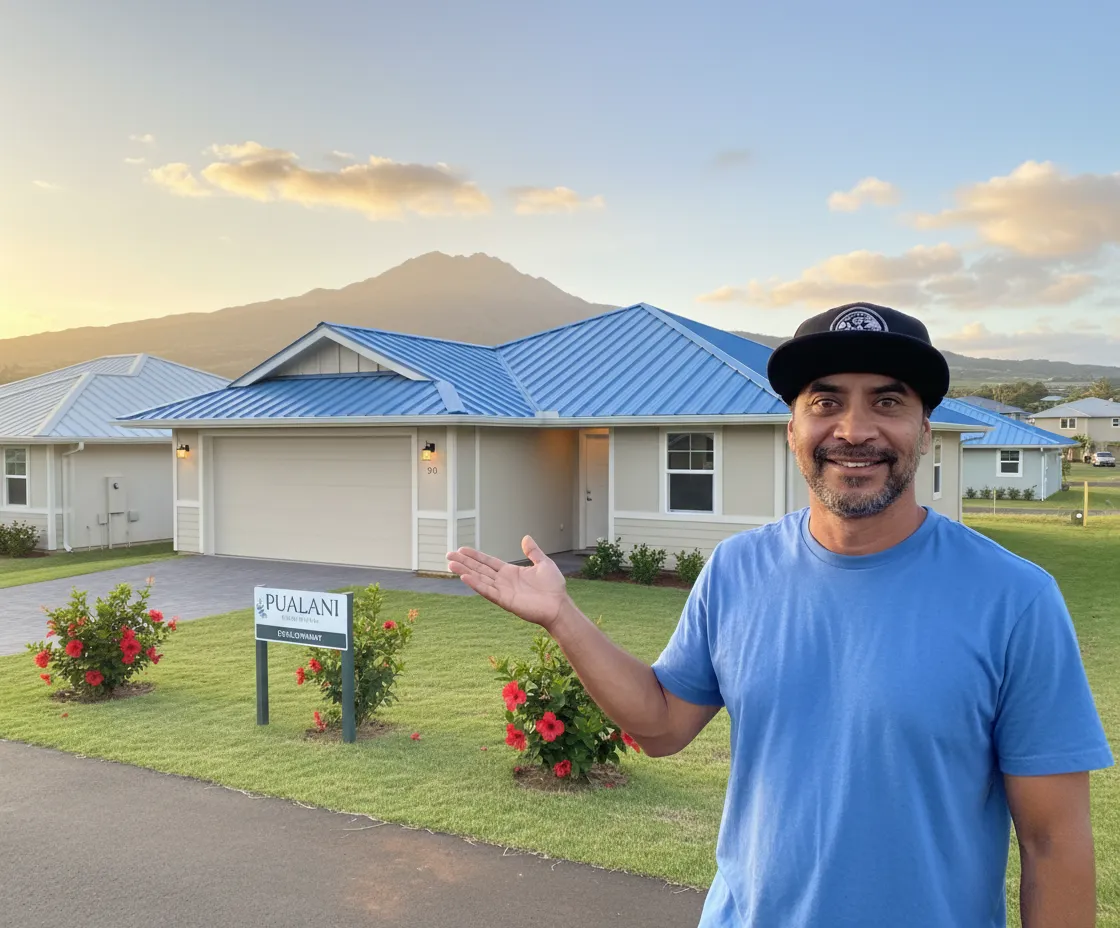
How to Build Affordable Housing in Hawaii with Fuzzy Jardine!
How to Build Affordable Housing in Hawaii: Lessons from Developer Fuzzy Jardine
Introduction: Why Hawaii Needs Creative Affordable Housing Solutions
Hawaii is one of the hardest places in the United States to build affordable housing. Limited land, high construction costs, and long permitting timelines create barriers for both local families and real estate developers. Yet on the Big Island, one local developer has found a way to make it work.
In this episode of the Affordable Housing & Real Estate Investing Podcast, host Kent Fai He sits down with Fuzzy Jardine, a Hawaii-based developer who has been building affordable homes for local families since 2013. Fuzzy shares how he went from earning $15 an hour as a window cleaner to creating a scalable system that delivers brand-new homes at prices local residents can actually afford.
For affordable housing investors, developers, and advocates, Fuzzy’s story is a blueprint on how creativity, grit, and resourcefulness can overcome even the toughest real estate markets.
How Can You Build Affordable Homes in One of the Most Expensive States?
Building affordable housing in Hawaii might sound impossible, but Fuzzy has developed a formula that works:
Buy land below market value. He targets lots 15–20K under retail prices.
Use pre-approved building plans. These cut permitting time down to about three months.
Leverage construction knowledge. With a background in contracting, Fuzzy knows how to keep build costs between $250K–$350K all-in.
Sell homes below appraisal. Listings are often 20–30K under retail value, with additional credits for buyers.
This process allows him to consistently deliver homes in the $330K–$365K range — a price point that’s far below most listings in Hawaii.
What Does the Development Process Look Like in Hawaii?
New investors often imagine development as heavy machinery and massive excavation projects. In reality, Fuzzy explains, it’s a structured step-by-step process:
Identify subdivided land that’s been sitting vacant for decades.
Run comps on nearby homes to reverse engineer the math.
Check permitting options with local counties, especially pre-approved plans.
Build with local contractors while keeping tight control of costs.
Sell with affordability in mind, ensuring families can qualify for financing.
By focusing on smaller homes and streamlining approvals, Fuzzy proves that development doesn’t have to mean luxury condos. It can mean starter homes for working families.
What Mistakes Should New Developers Avoid?
Fuzzy is candid about his early missteps:
Working without contracts. Verbal agreements and handshakes left him exposed when partners failed to deliver.
Hiring unlicensed subcontractors. One mistake with a plumber led to flooded brand-new homes.
Over-leveraging credit. At one point, he financed a project using 13 credit cards.
These lessons became part of his “real-world tuition” — experiences that sharpened his systems and pushed him to become a disciplined builder.
What Impact Has Affordable Housing Had on Local Families?
Affordable housing is not just about numbers. Fuzzy shares stories that highlight the human side:
A family from Kauai purchased a brand-new two-bedroom home for $230K with equity already built in. Their mortgage was only $1,400 per month, giving them stability in one of the most expensive markets in the country.
A single mother now lives in one of his rentals through Section 8. Far from the stereotypes, she has become one of his best tenants, treating the property as her own and proving why housing choice vouchers matter.
These examples show how affordable housing directly changes lives.
Key Insights for Affordable Housing Investors
Reverse engineer your deals. Start with the sales price, then back into land cost, build cost, and profit margin.
Use systems, not one-off projects. Pre-approved plans and repeatable models reduce risk and speed up timelines.
Invest in relationships. Good contractors, lenders, and community connections make or break projects.
Prioritize impact. Delivering affordability isn’t just good ethics, it creates lasting demand.
Memorable Quotes from Fuzzy Jardine
“In Hawaii, a lot of people have two or three jobs just to survive. I didn’t want to just survive. I wanted to build something that helps families thrive.”
“I once financed a project with 13 credit cards. It was crazy, but it taught me to never give up and to finish what I start.”
“Every home I build creates an ecosystem of jobs — surveyors, contractors, escrow, realtors. Affordable housing feeds an entire community.”
“People think Section 8 means problems. One of my best tenants is a single mom on Section 8. She treats the house like it’s her own.”
FAQ: Common Questions This Episode Answers
How can you make affordable housing projects work in expensive states like Hawaii?
By buying land below market, using pre-approved plans, and focusing on starter homes, developers can create affordable products even in high-cost areas.
What’s the first step for someone interested in development?
Fuzzy suggests working alongside a licensed contractor, even for free, to learn the process of building from start to finish.
What are the biggest risks in affordable housing development?
Partnership issues, unreliable contractors, and permitting delays can all derail a project if not managed carefully.
Do Section 8 tenants make good renters?
Yes. Many Section 8 tenants are excellent long-term renters who value stability and take care of their homes.

Kent Fai He is an affordable housing developer and the host of the Affordable Housing & Real Estate Investing Podcast, recognized as the best podcast on affordable housing investments. His mission is to spotlight leaders like Fuzzy Jardine who are proving that affordable housing is both possible and profitable.
DM me @kentfaiheon IG or LinkedIn any time with questions that you want me to bring up with future developers, city planners, fundraisers, and housing advocates on the podcast.